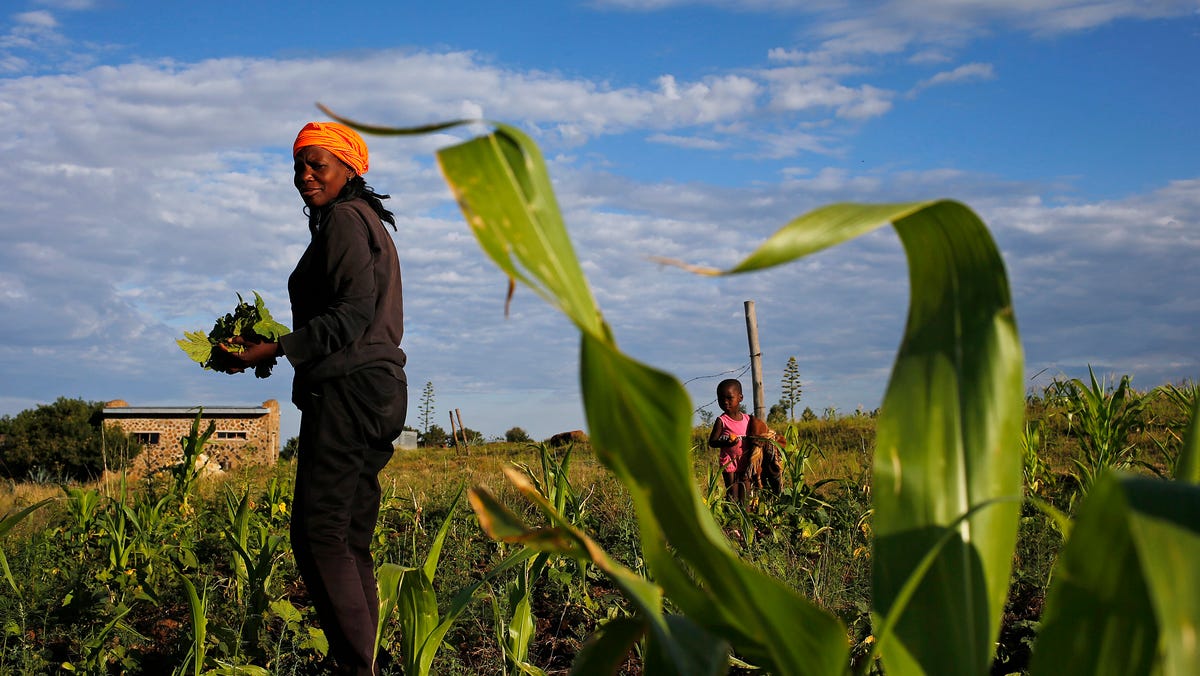Trump's Trade War: Lesotho Pays the Price – A Small Nation's Struggle
The ripple effects of the Trump administration's trade war continue to be felt globally, impacting even the smallest and most seemingly remote nations. Lesotho, a small, landlocked country entirely surrounded by South Africa, is a stark example of how large-scale trade disputes can disproportionately harm developing economies. While the headline battles focused on giants like China and the US, Lesotho, heavily reliant on its textile exports to the United States under the African Growth and Opportunity Act (AGOA), found itself caught in the crossfire. This article delves into the significant economic consequences Lesotho faced due to the trade war and the ongoing challenges it continues to grapple with.
The AGOA Advantage: A Precarious Position
For years, Lesotho's economy benefited significantly from AGOA, which granted duty-free access to the US market for its textile and apparel exports. This preferential treatment boosted Lesotho's manufacturing sector, creating vital jobs and contributing substantially to its GDP. The industry became a cornerstone of the nation’s economy, supporting thousands of workers, predominantly women. However, this reliance on a single market proved to be a double-edged sword.
The Impact of Tariffs and Retaliation
The Trump administration's imposition of tariffs on various goods, including those from China, triggered retaliatory tariffs from China on US products. This wider trade war created uncertainty and disruption in global supply chains. While not directly targeted, Lesotho's textile industry felt the knock-on effects. Reduced demand from the US, coupled with increased costs of imported raw materials due to global trade disruptions, severely hampered the sector.
- Reduced Export Demand: US buyers, facing increased costs and economic uncertainty, scaled back orders from Lesotho.
- Increased Raw Material Costs: Tariffs and trade disruptions increased the price of raw materials needed for textile production in Lesotho.
- Job Losses and Economic Slowdown: The combination of reduced orders and higher costs led to factory closures, job losses, and a significant slowdown in Lesotho's economic growth.
Beyond the Immediate Crisis: Long-Term Challenges
The immediate impact of the trade war was devastating, but the long-term consequences continue to pose significant challenges for Lesotho. The country is now striving to diversify its economy and reduce its reliance on a single export market. This requires significant investment in infrastructure, skills development, and exploration of new export opportunities.
Diversification Efforts and Future Outlook
Lesotho is actively working on diversifying its economy, exploring opportunities in other sectors such as tourism and agriculture. However, this process is slow and requires sustained international support and investment. The experience highlights the vulnerability of developing economies heavily reliant on preferential trade agreements with larger nations.
- Need for Economic Diversification: Lesotho needs to develop a more robust and diversified economy to withstand future economic shocks.
- Importance of Infrastructure Development: Improved infrastructure is crucial for attracting investment and boosting economic growth.
- Investment in Skills Development: Investing in education and skills training will equip the workforce for opportunities in new sectors.
- Seeking Alternative Export Markets: Exploring new export markets is vital to reduce dependence on the US market.
Lessons Learned and Future Implications
The experience of Lesotho during the Trump trade war serves as a critical reminder of the global interconnectedness of economies and the vulnerability of developing nations to large-scale trade disputes. It underscores the importance of sustainable economic development strategies that promote diversification and resilience. International cooperation and support are crucial in helping vulnerable countries navigate the complexities of global trade and build more resilient economies. The ongoing impact necessitates continued focus on providing support to Lesotho and other nations facing similar challenges. Moving forward, fostering robust, diversified economies will be key for nations to avoid becoming collateral damage in future trade conflicts.
Keywords: Trump trade war, Lesotho, AGOA, African Growth and Opportunity Act, textile industry, economic impact, developing economies, global trade, trade disputes, economic diversification, international trade, sustainable development, South Africa, landlocked country.
